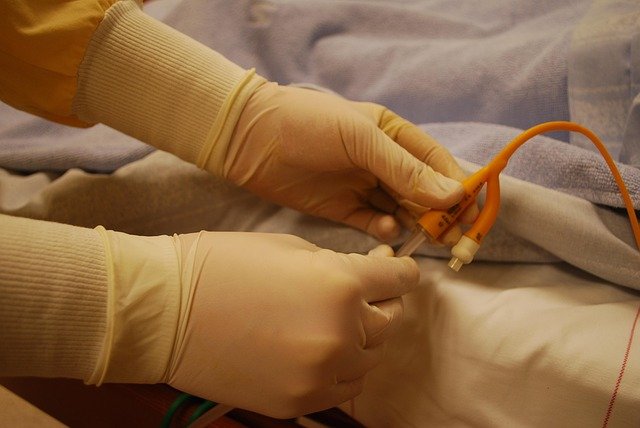Ductal Carcinoma Management: Approaches and Care Strategies
Ductal carcinoma represents one of the most common forms of breast cancer, originating in the milk ducts of the breast tissue. Understanding the comprehensive management approaches available helps patients and families navigate treatment decisions with greater confidence. Modern medical care emphasizes personalized treatment plans that consider individual patient factors, cancer characteristics, and overall health status to optimize outcomes and maintain quality of life throughout the treatment journey.

Diagnostic Evaluation and Assessment
The foundation of effective ductal carcinoma management begins with thorough diagnostic evaluation. Healthcare teams typically employ multiple imaging techniques, including mammography, ultrasound, and magnetic resonance imaging to determine the extent and characteristics of the cancer. Tissue sampling through biopsy procedures allows pathologists to analyze cellular features and identify specific cancer subtypes.
Comprehensive assessment also includes evaluating hormone receptor status and genetic markers that influence treatment decisions. These diagnostic steps help medical professionals stage the cancer accurately and develop individualized treatment strategies. Additional tests may examine lymph nodes and assess whether cancer has spread to other areas of the body, providing crucial information for treatment planning.
Surgical Approaches
Surgical intervention often serves as a primary component of ductal carcinoma management. The specific surgical approach depends on factors such as tumor size, location, and patient preferences. Breast-conserving surgery, also known as lumpectomy, removes the cancerous tissue while preserving most of the breast. This option may be suitable for smaller tumors that can be completely removed with clear margins.
Mastectomy involves removing the entire breast and may be recommended for larger tumors or when multiple areas of cancer are present. Reconstructive surgery options allow patients to restore breast appearance following mastectomy. Sentinel lymph node biopsy or axillary lymph node dissection may accompany these procedures to evaluate cancer spread and guide additional treatment decisions.
Systemic and Supportive Care Approaches
Comprehensive ductal carcinoma management extends beyond surgical intervention to include systemic treatments that address cancer cells throughout the body. Treatment plans may incorporate various therapeutic modalities designed to eliminate remaining cancer cells and reduce recurrence risk.
Radiation therapy uses high-energy beams to target specific areas and is commonly recommended following breast-conserving surgery. The treatment schedule and duration depend on individual circumstances and cancer characteristics. Supportive care measures help patients manage side effects and maintain comfort throughout treatment, including nutritional counseling, pain management, and coordination with various healthcare specialists.
Lifestyle and Emotional Support
Managing ductal carcinoma involves addressing both physical and emotional aspects of care. Lifestyle modifications can support overall health and treatment effectiveness. Regular physical activity, when appropriate and approved by healthcare providers, may help maintain strength and reduce fatigue. Nutritional support ensures patients receive adequate nutrients to support healing and immune function.
Emotional support plays a crucial role in comprehensive care. Many patients benefit from counseling services, support groups, or peer connection programs. Family members and caregivers also require support resources to help them provide effective assistance. Mental health services, social work support, and spiritual care contribute to holistic patient care approaches.
Ongoing Research and Emerging Approaches
The field of ductal carcinoma management continues evolving through ongoing research and clinical trials. Researchers investigate new treatment combinations, improved surgical techniques, and innovative approaches to reduce side effects while maintaining treatment effectiveness. Precision medicine approaches increasingly tailor treatments based on individual genetic profiles and tumor characteristics.
Immunotherapy research explores ways to enhance the body’s natural immune response against cancer cells. Clinical trials offer eligible patients access to cutting-edge treatments before they become widely available. Patients may discuss clinical trial participation with their healthcare teams to explore additional treatment options.
Understanding Approaches and Seeking Professional Guidance
Effective ductal carcinoma management requires collaboration between patients and experienced healthcare teams. Oncology specialists, surgeons, radiation oncologists, and support staff work together to coordinate comprehensive care plans. Second opinions from additional medical centers can provide valuable perspective on treatment options and help patients feel confident in their decisions.
Regular follow-up care monitors treatment response and watches for potential recurrence. Survivorship programs help patients transition from active treatment to long-term monitoring and health maintenance. Understanding available resources and maintaining open communication with healthcare providers supports optimal outcomes throughout the treatment journey and beyond.
This article is for informational purposes only and should not be considered medical advice. Please consult a qualified healthcare professional for personalized guidance and treatment.




